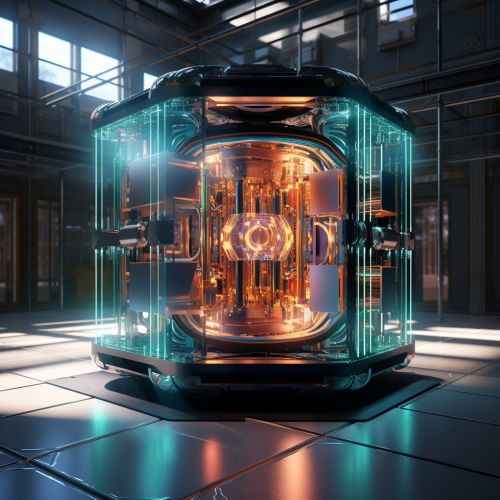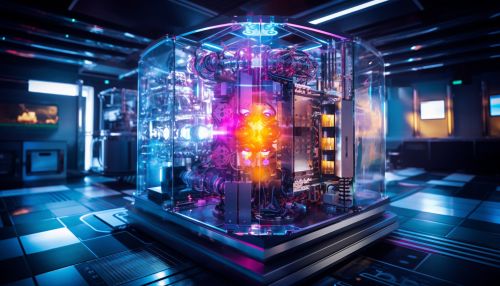Quantum Computers
Introduction
Quantum computers are a type of computational device that make direct use of quantum-mechanical phenomena, such as superposition and entanglement, to perform operations on data. Unlike classical computers, which require data to be encoded into binary digits (bits), each of which is always in one of two definite states (0 or 1), quantum computation uses quantum bits or 'qubits', which can be in a superposition of states.


Quantum Bits (Qubits)
A qubit is a quantum system that encodes the zero and the one into two distinguishable quantum states. However, being in a quantum system, the qubit can be in a superposition of both states at the same time, a property which is fundamental to quantum computing.
Quantum Gates
In quantum computing, a quantum gate (analogous to a logic gate in classical computing) is a basic quantum circuit operating on a small number of qubits. They are the building blocks of quantum circuits, like classical logic gates are for conventional digital circuits. Unlike many classical logic gates, quantum logic gates are reversible.
Quantum Circuits
A quantum circuit is a model for quantum computation in which a computation is a sequence of quantum gates, which are reversible transformations on a quantum mechanical analog of an n-bit register.
Quantum Algorithms
Quantum algorithms are algorithms which can be run on a quantum computer. Notable quantum algorithms include Shor's algorithm, which can factorize large numbers exponentially faster than the best known classical algorithm, and Grover's algorithm, which provides a quadratic speed-up over the best possible classical algorithm for unstructured search problems.
Quantum Complexity Theory
Quantum complexity theory is a branch of computational complexity theory which deals with complexity classes defined using quantum computers, a computational model based on quantum mechanics.
Quantum Error Correction
Quantum error correction is used in quantum computing to protect quantum information from errors due to decoherence and other quantum noise. Quantum error correction is essential for fault-tolerant quantum computation.
Quantum Computing and Cryptography
Quantum computers pose a significant risk to cryptography systems such as RSA and ECC which are used for secure data transmission. However, quantum computers also hold the promise for extraordinary advances in cryptography, with the potential to create virtually unbreakable encryption.
Quantum Supremacy
Quantum supremacy, or quantum advantage, is the potential ability of quantum computing devices to solve problems that classical computers practically cannot.
